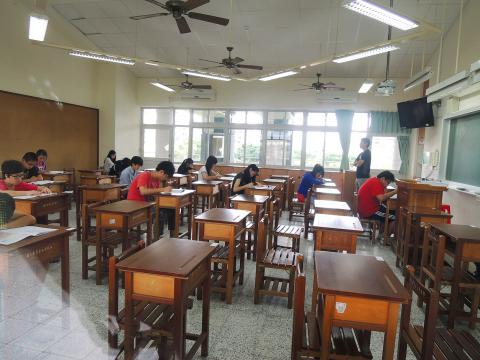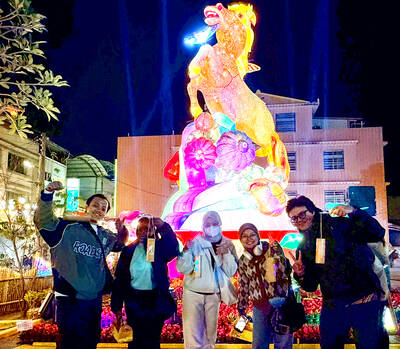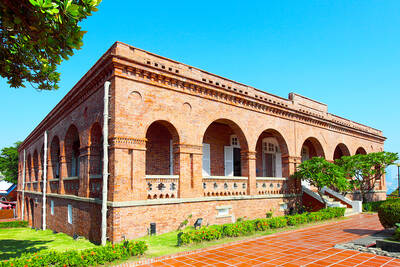According to an investigation conducted by the Ministry of the Interior, there are 120 plots of land covering 46 hectares that were expropriated by the government for yet-to-be-built schools, and 103 of those plots have been sitting there waiting to be developed for more than 20 years. Most of the plots have been left unused as fallow land, while some have been turned into simple sports grounds, green parks, or, in some cases, are being occupied by local residents.
The ministry says that, due to the fertility crisis, land that was expropriated for building schools more than 20 years ago will probably never actually see schools built. Hsinchu City, Chiayi City, Taitung County, Penghu County, Kinmen County and Lianchiang County are the only municipalities that have used all expropriated land that was originally intended for building schools. Among the other municipalities, Greater Taichung, with 39 plots, has the greatest amount of unused land that was initially expropriated for building schools. Greater Kaohsiung comes in second place with 16 plots, while Taipei comes in third with 10 unused plots of land.
Despite this, local governments would still like to keep 80 plots of land to build schools, and are only willing to put 25 of the plots up for city planning review to possibly change the use of the land for other purposes.

Photo: Hu Chien-sen, Liberty Times
照片:自由時報記者胡健森
The ministry says that its Urban Planning Commission will be gradually re-examining and improving the situation, comprehensively looking at unused plots of land that were intended for the construction of schools from an urban planning perspective so that the land can hopefully be used for a merited purpose.
(Liberty Times, Translated by Kyle Jeffcoat)
根據內政部調查,全國約有一二○處已徵收卻未興建學校的學校用地,面積逾四十六公頃,其中一○三處徵收時間超過二十年,卻仍遲未開闢,目前多數土地現狀為荒蕪未使用,或做簡易運動場、綠美化公園,甚至部分遭民眾佔用。
內政部表示,面對少子化衝擊,各縣市手中逾二十年未開闢卻已徵收的學校用地,未來將更難興建學校。目前僅新竹市、嘉義市、台東縣、澎湖縣、金門縣、連江縣等縣市內沒有已徵收尚未使用的學校用地,其餘縣市均有,以台中市最多,約有三十九處;高雄次之,約有十六處;台北市有十處,是已徵收、但閒置學校用地第三多的縣市。
就算如此,各縣市政府仍認為其中八十處應保留做為開闢學校用途,僅二十五處願意列入都市計畫檢討,欲變更為其他使用分區用地。
內政部表示,將透過內政部都市計畫委員會逐步審議與改善,將閒置學校用地納入都市計畫通盤檢討,期望達到地盡其用及符合土地正義的目標。
(自由時報記者徐義平)

A: Harvard professor Robert Waldinger’s “7-day Happiness Challenge” includes: Day 1: Take stock of your relationships; Day 2: The secret power of an 8-minute phone call; Day 3: Small talk with strangers has big benefits. B: That’s not too hard. What’s next? A: Day 4: Why you should write a “living eulogy;” Day 5: The importance of making work friends; Day 6: Don’t cancel those social plans. B: Good ideas. What’s the final challenge? A: Day 7: Keep happiness going all year long. So, I’m inviting some friends to the Taipei Lantern Festival today to build good relationships. Wanna

★ 本文由生成式 AI 協作,本刊編輯編修。 For tourists looking for a scenic way to spend an afternoon in Kaohsiung, heading to the British Consular Residence of Takao is the perfect choice. Its elevated position allows one to take in the bustling Kaohsiung Harbor to the east and the dazzling sunset over Sizihwan Bay to the west. This elegant red-brick building also serves as a portal to the city’s rich history. Interestingly, for 70 years, many people mistakenly identified this residence as the actual consulate. The history of “Takao,” the former name of Kaohsiung, began its international chapter in the mid-19th century. As European powers

★ Bilingual Story is a fictionalized account. 雙語故事部分內容純屬虛構。 The fog came before the knock. It covered the street and pressed against the window. Chao Gung-dao lit a small oil lamp, but his makeshift hut stayed dim. Another knock. Chao opened the door. The inspector stepped inside and removed his hat. He did not smile. “You remember me?” the inspector said. Chao resented the question. The inspector looked around the small room. His eyes stopped on a wooden box resting on a low beam above Chao’s head. “What is that?” Chao stayed silent. The inspector pulled the box down and

★ 本文由生成式 AI 協作,本刊編輯編修。 Continued from yesterday(延續自昨日) https://www.taipeitimes.com/News/lang Kaohsiung’s deep connection with the sea continues to thrive, with Kaohsiung Harbor remaining a crucial hub for global shipping. In addition to the port, the city has emerged as a major player in another world-class maritime industry—yacht manufacturing, responsible for producing 80 percent of all Taiwan-made yachts. The yacht industry in Taiwan originated in the post-World War II era, when the US military presence in Taiwan provided local boat builders with guidance on making wooden yachts. The resulting craftsmanship was so exquisite that orders soon poured in. In 1977, Taiwan replaced Canada as the main yacht